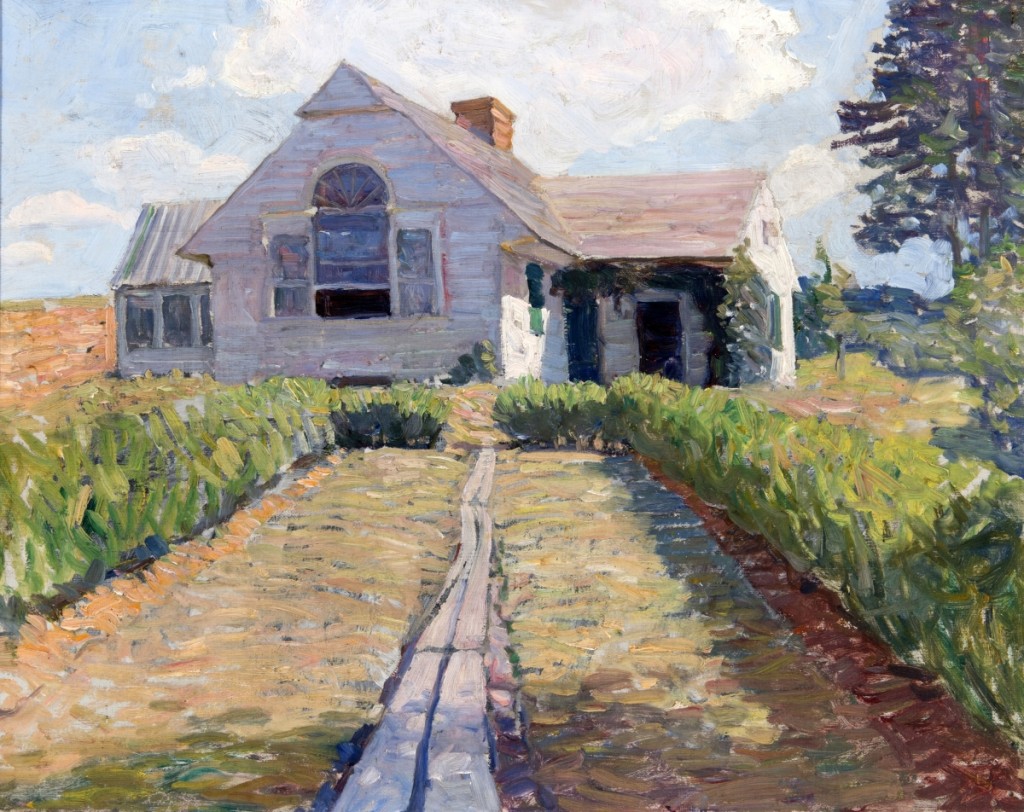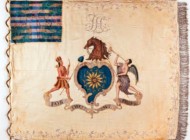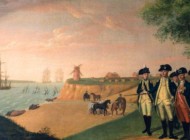
“The Studio,” circa 1913–15, oil on canvas, measuring 16 by 20¼ inches. From the collection of Mr and Mrs Frank E. Fowler.
CHADDS FORD, PENN. – This summer, the Brandywine River Museum of Art presents, “N.C. Wyeth: New Perspectives,” the first exhibition in almost 50 years to examine in depth the entirety of Wyeth’s multifaceted oeuvre. A formidable yet often overlooked figure in the history of American art, N.C. Wyeth (1882-1945) was the foremost illustrator of his generation, and the patriarch of an extraordinary family of artists. By repositioning Wyeth as a distinguished painter who worked across the perceived divisions of visual culture in painting, illustration, muralsFrom and advertising, the exhibition offers new insights on Wyeth’s place within the broad spectrum of early Twentieth Century visual arts.
Co-organized by the Brandywine River Museum of Art and the Portland Museum of Art (PMA), this landmark exhibition, which will include approximately 70 paintings and drawings selected from major museums and private collections, will be on view at the Brandywine River Museum of Art from June 22 through September 15.
Well known during the Twentieth Century for his bold, imaginative illustrations that brought new characterizations to classic stories such as Treasure Island, The Boy’s King Arthur and The Last of the Mohicans, Wyeth was a prolific artist who vigorously pursued parallel interests in painting landscapes, seascapes, portraits, still life paintings, murals and advertising images throughout his career. A master of many styles and a brilliant colorist, Wyeth employed the skills developed in the work he produced for publishers and advertising companies to explore and address various thematic and stylistic currents running through the first five decades of the Twentieth Century. Wyeth’s nuanced grasp of how to create emotional power through composition and light effects was not only influential, but also established a certain visual standard for dramatic imagery.
The exhibition will feature the iconic paintings Wyeth created to illustrate books and magazine stories, as well as the remarkable landscapes and figurative works of art that have, up until now, garnered less attention. They include examples of his experimentation with Impressionism during the 1910s-20s, as well as his shift towards American Regionalism and his adoption of elements of Modernism from the late 1920s through the mid-1930s. Among the exhibition highlights on view, “Island Funeral,” 1939, one of Wyeth’s most seminal and complex narrative paintings, represents the culmination of a protracted period of artistic experiment and invention.
The Brandywine is the first of three national venues for this exhibition, and visitors coming to Chadds Ford have a unique opportunity to further immerse themselves in both Wyeth’s work and life. N.C. Wyeth’s own home and studio – a National Historic Landmark and the locus of roots that have nourished a family of extraordinary creativity for more than a century – are owned by Brandywine and open for public tours daily. Wyeth’s studio is much as the artist left it at his untimely death in 1945.
The Brandywine River Art Museum is at 1 Hoffmans Mill Road. For information, www.brandywine.org/museum or 610-388-2700.











